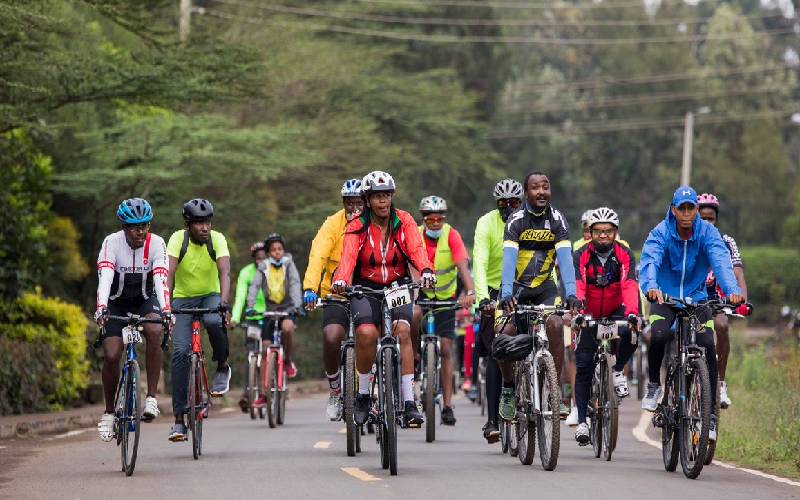It’s a new business, and one which is already gaining popularity in Nairobi’s Eastlands area.
You will see bicycle shades spread across the estate – almost now becoming an eyesore – some containing up to 100 second hand bicycles spread on footpaths in Eastlands.
Many Nairobians who cannot afford bus fare daily have opted to cycle to work as all it needs is a little sweat, and skill to navigate the annoying Nairobi traffic.
Timothy, who goes by the alias Timo, sells second-hand bicycles in Eastlands. He says the money is good as demand has kept growing.
“The bicycles are ex-UK. They have just arrived from abroad and as you can see, I am in the process of cleaning and repairing them as I display them for the customers,” offers Timo when I approached his stand.
“That one will cost you Ksh18,000. It just arrived from the United Kingdom. That other one I give it to you at Ksh 15,000,” he says without blinking.
Of course I am shocked that a bicycle can cost that much. One can tell from his stock of bicycles that it’s a capital intensive venture even though the bicycles are nowhere near new.
A source told Mwanahabari.co.ke that the bicycles are obtained at a very low price abroad – and resold at an exorbitant price once they land in Kenya.
“As you can see, these are second-hand bikes, some were discarded or just given away by their original owners,” said the source.
Timo says he targets low-income earners working in industries Nairobi – individuals who earn at most Ksh 20,000 per month – and reside kilometres away from their workplaces.
These are individuals who cannot afford Ksh200 or Ksh300 daily bus fare and still lead a decent life in Nairobi.

Tom says business is good – although it took a hit at the height of the pandemic when the skies were closed and nothing was coming into the country.
“It’s a good business because many Kenyans are now cycling to work. Of course we registered declining numbers when everyone began working from home and most industries either closed or scaled down operations. I know many people who were fired from industries and other manufacturing spots, and these are our main clients,” said Timo.
A number of industries in Nairobi have entered into arrangements with their employees and bicycle dealers. In the arrangements, the dealers give employees bicycles with the payment spread across a number of months – sometime up to 36 months.
The money is deducted directly from employees salaries and paid to the supplier at the end of every month – normally after a small down payment is made. The business has also led to the mushrooming of the bicycle repair business in the capital as many people occasionally need their bicycles fixed in case of a mechanical problem.
“Gone are the days when bicycle repair shops only thrived in the villages. It’s a big business across Nairobi and its surrounding areas,” said Johnson Otieno who has been repairing bicycles in Nairobi’s Umoja area.

John says he makes – on a good day – up to Ksh 2,000.
He says he has been able to pay his rent in the city, feed his family and comfortably send his children to school.
“I have two girls in secondary school and a boy who is in primary school. I cater for all their needs with the money I get from the business,” he told Mwanahabari.co.ke.
Meanwhile incidences of bicycle theft especially in Nairobi’s upmarket areas has shot up with criminals said to be targeting posh estates like Lavington, Kiliman, Karen, Lang’ata where cycling is an important pastime activity.
Police have often claimed that most of the stolen bikes are resold in Nairobi’s Eastlands area.
But dealers like Timo say they do a clean business – and they even pay taxes.
“There are people who even claim that these bicycles are stolen abroad in countries like the UK, then shipped to Kenya. Others claim these are rides grabbed from rich kids in Karen. That could be happening elsewhere, but most of us do a clean business,” Timo told Mwanahabari.co.ke.

